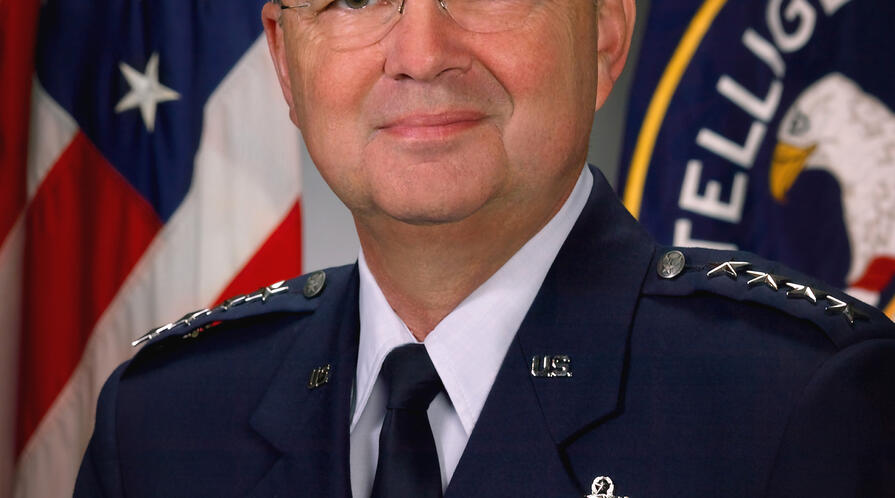Hayden launches 'Security Conundrum' speaker series
Hayden launches 'Security Conundrum' speaker series

A new Stanford speaker series, "The Security Conundrum," explores how America can strike the right balance between security and liberty in a dangerous world. Nationally prominent speakers will engage in candid conversations on thought-provoking topics and issues.
In an age of terrorism and technology, fundamental questions have arisen about how a democratic society like the United States can find the right balance between security and liberty.
That's the puzzle behind a new Stanford speaker series, "The Security Conundrum," which kicks off at 7:30 p.m. Oct. 8 with Gen. Michael Hayden, the former director of the National Security Agency and the CIA.
The event, "Inside the NSA," is free and open to the public. It will be held at the CEMEX Auditorium, 641 Knight Way on the Stanford campus.
As part of the speaker series during the academic year, other nationally prominent experts will visit Stanford, where they will dive deep into conversations with campus experts.
On Nov. 17, journalist Barton Gellman will be the featured speaker. He is known for his Pulitzer Prize-winning reports on the 9/11 attacks and has led the Washington Post's coverage of the NSA. On April 10, Reggie Walton, the former presiding judge of the Foreign Intelligence Surveillance Court, will take the stage as the speaker. Also, U.S. Sen. Dianne Feinstein has agreed to participate, though the date for her appearance has not yet been scheduled.
Hayden on the rise of NSA surveillance
In conversation with Stanford scholar Amy Zegart, Hayden will provide an insider's account about the origins and development of the NSA programs. After the 9/11 attacks, at the request of the White House, Hayden intensified and expanded NSA wiretapping operations of various communications between Americans and terrorist suspects abroad in hopes of detecting and preventing another terrorist attack.
Hayden was the first principal deputy director of national intelligence (2005-2006) and director of the National Security Agency (1999-2005). He is a retired U.S. Air Force four-star general and is now a principal of the Chertoff Group.
Zegart, co-director of Stanford's Center for International Security and Cooperation and a senior fellow at the Hoover Institution, said, "There is no better place to engage in this kind of multifaceted, open inquiry than a university."
She noted that there is "no better university" to explore such an issue than Stanford – with its home in Silicon Valley and faculty involved in national security issues. She described the institution as a "trusted convener on issues of national importance."
Zegart said that after the NSA's widespread efforts at mass surveillance were revealed last year, she and CISAC Consulting Professor Philip Taubman envisioned a campus conversation examining the relationship between secrecy, security and liberty in the digital age.
"These are thorny and complex questions with wide-ranging and often strongly held views," she added.
"The Security Conundrum" is co-sponsored by Stanford's Freeman Spogli Institute for International Studies, the Center for International Security and Cooperation, the Hoover Institution, Stanford Continuing Studies, Stanford in Government and Stanford Law School.
The NSA and Silicon Valley
Each talk, Zegart said, will focus on a different issue and include a different expert. The idea is to go beyond the headlines to examine in depth NSA operations, legal issues, the media's role and the responsibility of Congress in overseeing intelligence gathering. Another topic is NSA's uneasy and evolving relationship with Silicon Valley.
The U.S. government's initial efforts in data collection – involving some Silicon Valley companies – were executed without a court order and after being revealed by the New York Times were subsequently placed under judicial review.
Over time, the NSA's efforts grew into the multidimensional programs exposed by Edward Snowden, including the collection and storage of phone and email metadata covering billions of calls and messages between American citizens.
Zegart said, "We designed 'The Security Conundrum' to be a speaker series rather than a one-off event so that each session could provide a deeper dive into one perspective at a time. I hope that each speaker in the series gets people talking and thinking about perspectives they might not have considered before."
